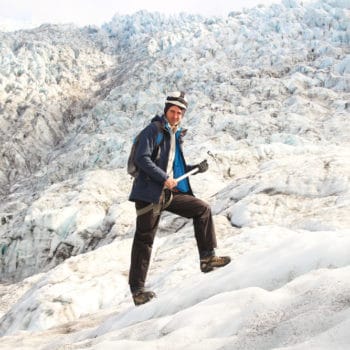Why We Love It
-
$105,720Potential Avg. Salary*
-
Growing DemandJob Outlook
* Salary & growth data is based on the recent Bureau of Labor and Statistics data published at https://www.bls.gov/oes/current/oes192042.htm for 19-2042 Geoscientists, except hydrologists and geographers 11/2021. Based on national data, not school-specific information. Conditions in your area may vary.
If you’re fascinated by marine life or interested in researching how global climate change is impacting shorelines, a bachelor of science in oceanography may be right for you.
Oceanography is a scientific degree grounded in biology, physics, and geography, and the degree is usually a starting point for further education. Graduates work as marine biologists, oceanographers, and underwater photographers.
What is a Degree in Oceanography?
The ocean is one of the few remaining unexplored areas of Earth, and oceanographers seek to study these massive bodies of water to discover new marine and plant life, look for connections between underwater life and evolution, and seek to understand how environmental changes impact ocean properties.
In an oceanography program, you’ll study the biology of marine life, the geography of oceans from their surfaces to their depths, and the impact of climate change and pollution on oceans.
Oceanography majors may have the opportunity to study the field generally, or they may be required to choose a concentration in the field. Common concentrations include marine biology—the study of the oceanic life forms—or earth sciences, the study of the ocean in the context of its impacts on land and shores.
For the most part, a bachelor’s degree in oceanography is a starting point for a career in the ocean sciences, and many graduates choose to earn graduate degrees to qualify for research-oriented roles.
Recommended Schools
What Courses Would I Take For a Major in Oceanography?
- Ocean Circulation
- Field Oceanography
- Chemical Oceanography
- Marine Geology & Geophysics
- Physical Processes in Oceanography
- Biological Oceanography
- Design of Oceanographic Field Experiments
- Oceanic Data Interpretation
What Jobs Can You Get with a Degree in Oceanography?
Most funding for research into the oceanic and marine biology sciences comes from government agencies, and as such, demand for researchers in the field is slower than the national average for other careers.
However, there are many ways for graduates to earn an income using the knowledge in their field even if research roles aren’t available. Graduates can usually find work as underwater photographers, oceanography educators, aquarium caretakers, or scuba diving instructors while awaiting openings for research roles.
How Long does it take?
A bachelors in Oceanography will have a typical length of 4 years in a full time schedule. That said, there are many ways to speed up the timeframe by either taking more units via online coursework, community college, or taking free classes at OnlineDegree.com that could transfer to universities in the US.
Recommended Schools
Best Jobs for Oceanography Degrees
The advantage of a bachelor’s degree in accounting is its flexibility. While you can work as an accountant, you’ll also qualify for a number of other careers in the business and financial industries.
Individuals with accounting degrees qualify for a number of careers that require mathematical analysis—from individual tax preparers to data analysts who research and report market trends.
How to save time and money
Our mission is to help you to avoid paying full price for college. We want your Oceanography degree to be affordable and accessible. Here’s how you could save:
Create Your Free SmartPlan

There are many ways to make college affordable and accessible.
That’s why we created a helpful tool called SmartPlan.
It’s free, and helps you find potential ways to save and tons of information about each school you’re considering
Think of it as your “college blueprint”, to help you instantly craft a path to your degree:
- Which Colleges Match Your Needs
- Ways You Could Save Time & Money
- Free Courses You Could Take for Credit
- Valuable Data and Insights on Each College
- Detailed Steps You Should Take!
See what’s possible for you and generate a free plan within just a few minutes
Create My SmartPlanYou Might also be Interested in
Many visitors who look for a degree in Oceanography are also interested in the following degrees.











